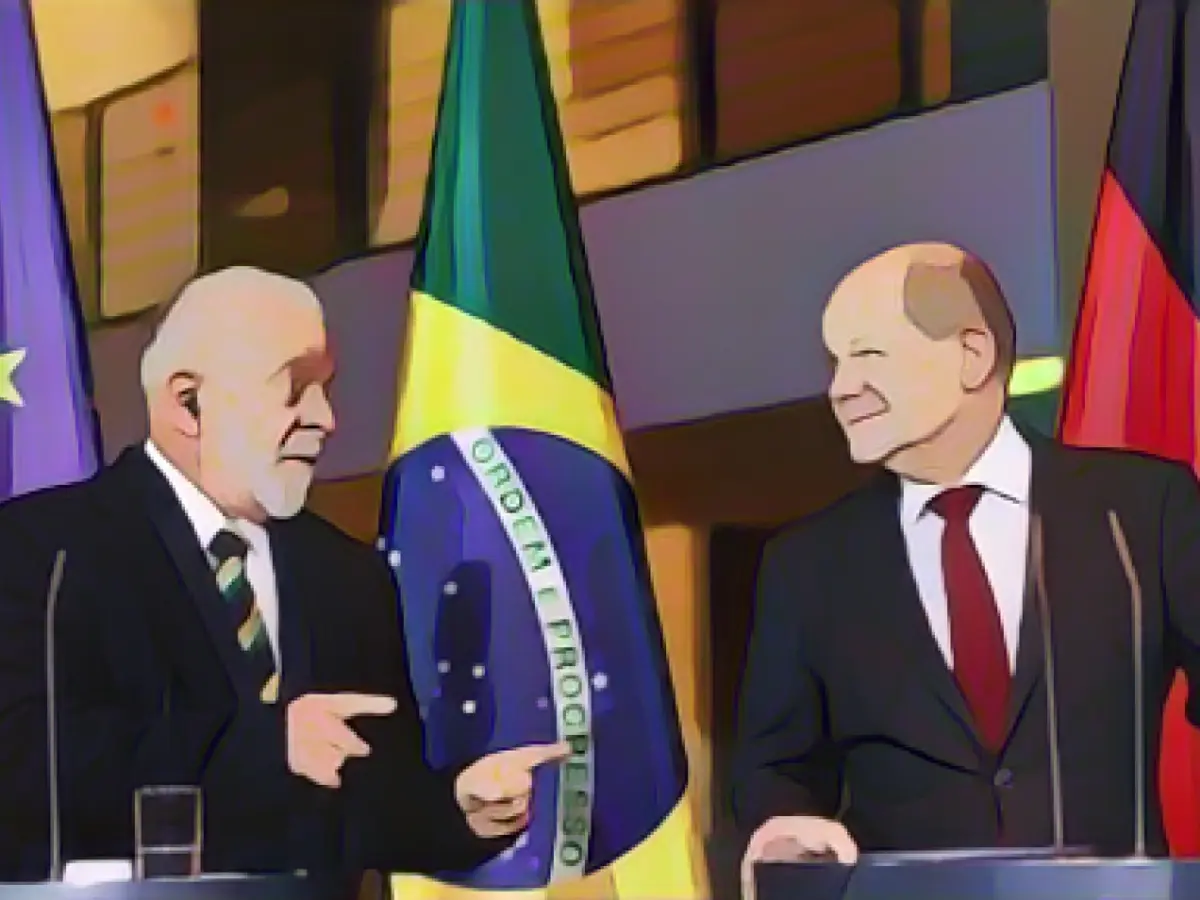Scholz Urges Compromise on Mercosur Agreement, Emphasizes Importance of EU-Brazil Relations
German Chancellor Olaf Scholz has urged all parties involved in the Mercosur agreement to be pragmatic and willing to compromise, stating that it could be a significant step forward. Scholz emphasized Germany's support for concluding such an agreement, believing it would lead to improved relations between Mercosur and the EU.
Scholz referred to the strong bilateral ties between Germany and Brazil during this context, noting the joint declaration of intent between the two nations. As Germany's most substantial trading partner in South America, Brazil has signed numerous agreements with Germany during intergovernmental consultations, particularly in the areas of green hydrogen and raw material extraction.
Brazilian President Lula encouraged a swift conclusion to the Mercosur-EU trade agreement during the summit in Rio de Janeiro, highlighting the importance of the negotiations which have been ongoing for 23 years. Germany and other EU members are pushing for rapid ratification, despite opposition from countries like France and Austria, who advocate for strict environmental requirements to protect their own farmers.
Future Argentinian President Javier Milei has criticized the EU agreement during his election campaign, threatening to withdraw Argentina from the pact. The responsibility for ratifying the agreement lies with the EU Commission, with approval required from both the commission and the EU Parliament. Despite objections, the EU and Mercosur aim to conclude the agreement as soon as possible, with EU Commission spokesperson Balazs Ujvari confirming their intentions in Brussels.
Insights from Enrichment Data
- Germany's Stake in the Agreement: Germany reaps significant benefits from the agreement due to its position as the largest exporter to the Mercosur region. EU-Mercosur trade accounts for 10% of Germany's total goods exports (German Ministry of Economics and Energy, 2022).
- French Concerns: France primarily opposes the deal due to its impact on domestic agriculture, with cheaper sources of produce from South America posing a threat to French farmers' profits and market share. Strict environmental requirements and French sovereignty concerns also play a role in France's objections.
- General Challenges: The agreement faces politically divisive issues within the EU, with other members like Austria, Ireland, and Poland harboring concerns about the deal's impact. Transparency and sustainability issues are vital, as the EU Ombudsman has challenged the Commission for its lack of openness and insufficient consideration of sustainability concerns.
The Future of the Agreement
The EU-Mercosur agreement faces an uncertain future, with sharp divisions within the EU. Parliamentary review and approval are essential for the agreement to enter into force. If approved, the agreement could revolutionize bilateral trade relations between the EU and Mercosur nations, creating opportunities for economic growth, investment, and cooperation.
However, if objections from member states are not addressed, the deal may face significant hurdles, potentially delaying or even derailing its implementation. The outcome ultimately depends on the EU's ability to strike a balance between maintaining its agricultural interests and fostering more harmonious trade relations with Mercosur countries.








